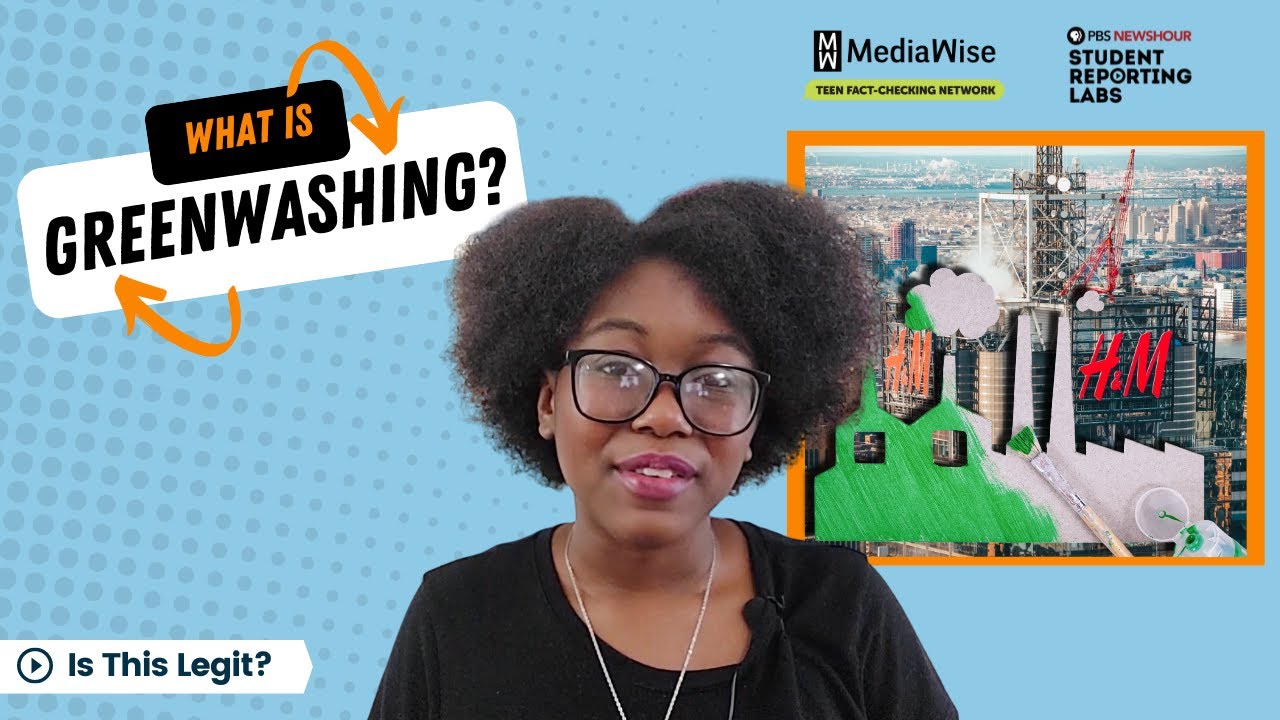Jornal da USP – Greenwashing, o Falso Marketing Ambiental [13 10 2017]
Summary
TLDRIn this segment, Professor Pedro Luiz Côrtes discusses the issue of 'greenwashing,' where companies falsely claim their products are environmentally friendly. He highlights examples such as misleading ads for steel wool, a Colombian oil company portraying fossil fuels as clean, and a cigarette brand promoting its tobacco as less harmful. The professor emphasizes the importance of proper certification and transparency in eco-friendly products. Consumers must look for credible proof and certifications rather than relying on self-declarations, with regulatory bodies like CONAR ensuring accurate advertising. The segment provides vital insights into recognizing deceptive environmental marketing.
Takeaways
- 😀 Companies are increasingly using environmental marketing strategies to appeal to environmentally conscious consumers, offering 'green products.'
- 🌍 Greenwashing refers to companies falsely marketing their products as environmentally friendly when they are not, misleading consumers.
- 🚫 A famous example of greenwashing was the Bombril advertisement, where the company falsely claimed their steel wool was 100% eco-friendly.
- 🛢️ Ecopetrol, a Colombian oil company, produced an ad suggesting that their petroleum extraction process was 'clean,' which is misleading since petroleum is inherently harmful to the environment.
- 🚬 A US cigarette brand falsely advertised its products as 'organic' and 'eco-friendly,' implying that they were less harmful than other cigarettes, which is deceptive.
- 🐾 A Canadian association inaccurately promoted animal skin as both 'natural' and 'ecological,' despite it not being a sustainable resource.
- 📜 Products claiming to be 'environmentally friendly' should have certifications from independent organizations to substantiate their claims.
- ⚖️ A simple self-declaration from a company that a product is eco-friendly is not enough; additional proof and certification are needed to back up such claims.
- 🛑 Misleading consumers by claiming products comply with banned substances, like CFCs, is not a genuine environmental benefit, as the use of such substances is already prohibited by law.
- 👨⚖️ Consumers should verify environmental claims by looking for reliable certifications on product packaging and reports that provide transparent and accurate information.
Q & A
What is 'greenwashing'?
-Greenwashing is a practice where companies falsely present their products or services as environmentally friendly or sustainable, often to mislead consumers into believing they are making eco-conscious choices.
Can you provide an example of greenwashing mentioned in the transcript?
-One example is a Bombril advertisement where they claimed their steel wool product was 100% ecological, despite the environmental impacts of its production process, such as mining and steel manufacturing.
What is the significance of certifications for environmentally friendly products?
-Certifications are crucial as they validate that a product meets specific environmental standards. They help ensure that companies are genuinely providing eco-friendly products rather than making misleading claims.
What role does CONAR play in regulating misleading environmental claims in advertising?
-CONAR (National Council for Advertising Self-Regulation) monitors advertisements and ensures that misleading claims, like false environmental benefits, are removed from the public domain. For example, they intervened to remove the Bombril advertisement.
Why is it problematic for a company to advertise that a product does not contain a banned substance like CFC?
-Advertising that a product does not contain a banned substance like CFC is misleading because it only indicates compliance with existing regulations, not an additional environmental benefit. It doesn't make the product better than others, as the use of such substances is already prohibited.
What does the example of Ecopetrol demonstrate in terms of greenwashing?
-Ecopetrol, a Colombian oil company, produced an ad claiming that the oil they extracted was clean and environmentally friendly. This misleads consumers into thinking fossil fuels can be eco-friendly, despite the inherent environmental harms of fossil fuel extraction and use.
How does the practice of greenwashing affect consumers?
-Greenwashing confuses consumers and undermines their ability to make informed, environmentally responsible decisions. It exploits growing consumer demand for sustainable products without providing actual environmental benefits.
What should consumers look for when purchasing environmentally friendly products?
-Consumers should check for legitimate certifications and seek information that proves the environmental claims made by the company. Simple self-declarations or vague claims are insufficient.
What is the responsibility of businesses in promoting environmentally friendly products?
-Businesses must be transparent and provide verified evidence that their products are genuinely environmentally friendly. This includes offering certifications and detailed information that supports their claims.
What is the role of government agencies in addressing greenwashing?
-Government agencies, such as the Ministry of Consumer Protection and public prosecutors, are responsible for regulating misleading advertising. They can investigate and act against companies that engage in greenwashing to protect consumers from deceptive practices.
Outlines

This section is available to paid users only. Please upgrade to access this part.
Upgrade NowMindmap

This section is available to paid users only. Please upgrade to access this part.
Upgrade NowKeywords

This section is available to paid users only. Please upgrade to access this part.
Upgrade NowHighlights

This section is available to paid users only. Please upgrade to access this part.
Upgrade NowTranscripts

This section is available to paid users only. Please upgrade to access this part.
Upgrade NowBrowse More Related Video
5.0 / 5 (0 votes)





